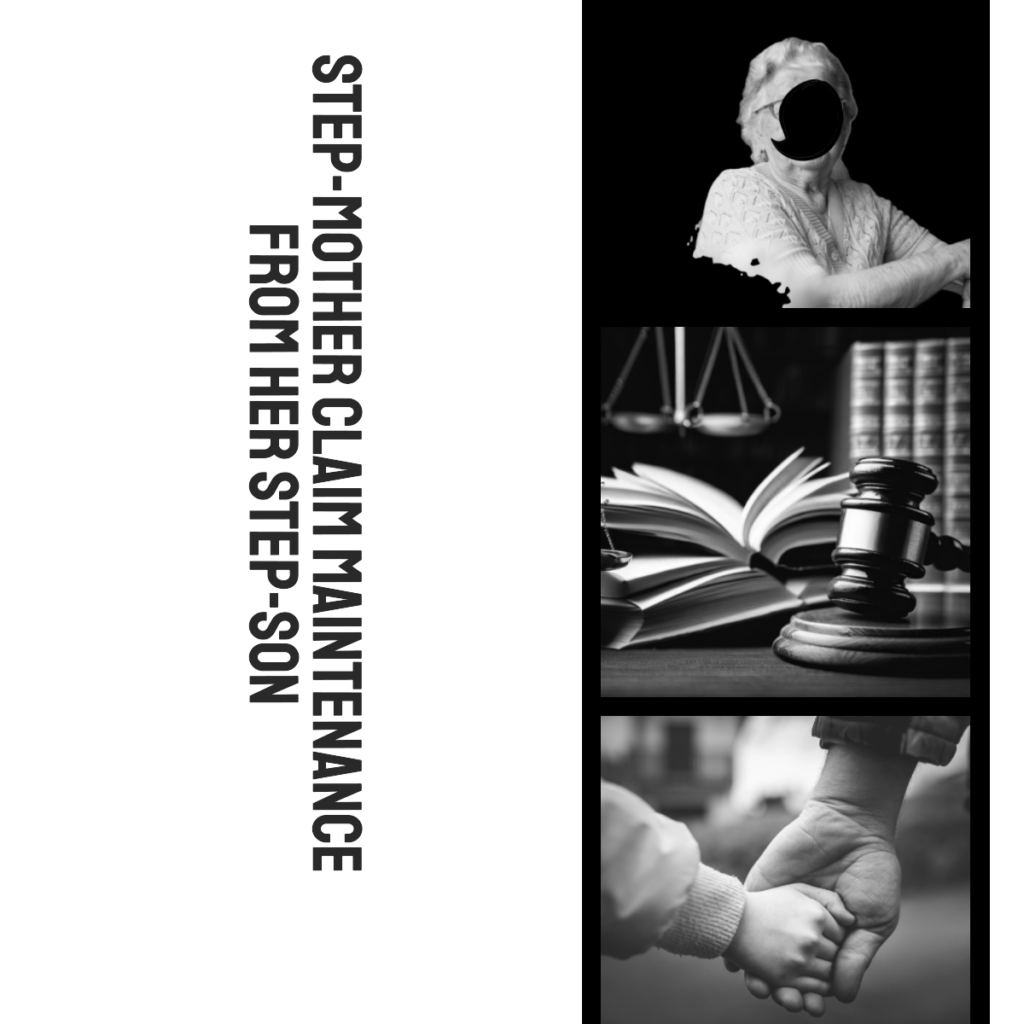
Can a Step-Mother Claim Maintenance from Her Step-Son? Exploring the Kirtikant D. Vadodaria Case”
Maintenance : In a legal landscape filled with nuances and complexities, the judgment of Kirtikant D. Vadodaria vs. State of Gujarat & Anr, delivered on April 26, 1996, brings into sharp focus an essential question – whether a step-mother can rightfully claim maintenance from her step-son under Section 125 of the Criminal Procedure Code, 1973. This landmark case offers a definitive interpretation of this matter.
Background and Key Players Maintenance Matter
This legal case centered on Kirtikant D. Vadodaria, who served as the appellant. He was the son of Danyalal Hirachand Vadodaria from his first wife. Tragically, following the passing of his biological mother, Danyalal Hirachand entered into a subsequent marriage with Smt. Manjulaben. As a result of this marriage, Smt. Manjulaben assumed the role of Kirtikant’s step-mother. Their union further extended to encompass five sons and two daughters.
The Maintenance Claim
Danyalal Hirachand initially filed a maintenance claim against his own son, Kirtikant. He argued that Kirtikant, serving as a Manager at Central Bank of India and having rental income, was obligated to provide financial support. Kirtikant countered by asserting that, aside from his five step-brothers who were all earners, his father also had substantial means and assets, making it unnecessary for him to pay maintenance.
The Legal Battle
The Magistrate’s court evaluated the evidence and concluded that Danyalal Hirachand was financially stable and denied his maintenance claim. Later, a maintenance petition was jointly filed by Danyalal Hirachand and Smt. Manjulaben against Kirtikant. They asserted that Kirtikant had been brought up and educated by them, emphasizing that he held the position of a bank manager, complete with a substantial income. However, Kirtikant vehemently contested these assertions, countering that his step-brothers enjoyed ample financial resources. He argued that the maintenance petition appeared to be nothing more than a tactical move aimed at causing him unwarranted harassment. This legal battle hinged on the conflicting accounts of financial stability and familial support.
Crucial Legal Interpretation
The heart of the matter rested on whether a step-mother could claim maintenance from her step-son. The case saw conflicting decisions from different high courts. The Gujarat High Court, Orissa High Court, and the High Court of Allahabad believed that the term “mother” in Section 125 included a step-mother, while the Bombay High Court, High Court of Madhya Pradesh, and High Court of Andhra Pradesh took the opposite stance.
The Verdict
After an extensive analysis of legal definitions and social objectives, the Supreme Court ruled that the term “mother” in Section 125 of the Code could only refer to the natural mother who gave birth to the child. A step-mother, devoid of any blood relation to the child, could not find inclusion within this definition. Therefore, a step-mother, lacking any blood relation to the child, is undeniably excluded from this definition.
However, the judgment clarified that the question of the step-son’s responsibility to support the step-mother from the inherited family estate should be a separate determination.
Conclusion
The Kirtikant D. Vadodaria case established that a childless step-mother could claim maintenance from her step-son only if she was a widow or if her husband, the father of the step-son, was incapable of supporting her. This ruling was based on the fundamental objective of Section 125, which aimed to provide social justice and prevent destitution for those in need. The judgment also emphasized that interpreting the law in a manner that serves this humanitarian goal is imperative.
This case, undoubtedly, serves as a significant testament to the intricate facets of family law. And the need for clear legal interpretations in ensuring justice and fairness.



Leave a Reply